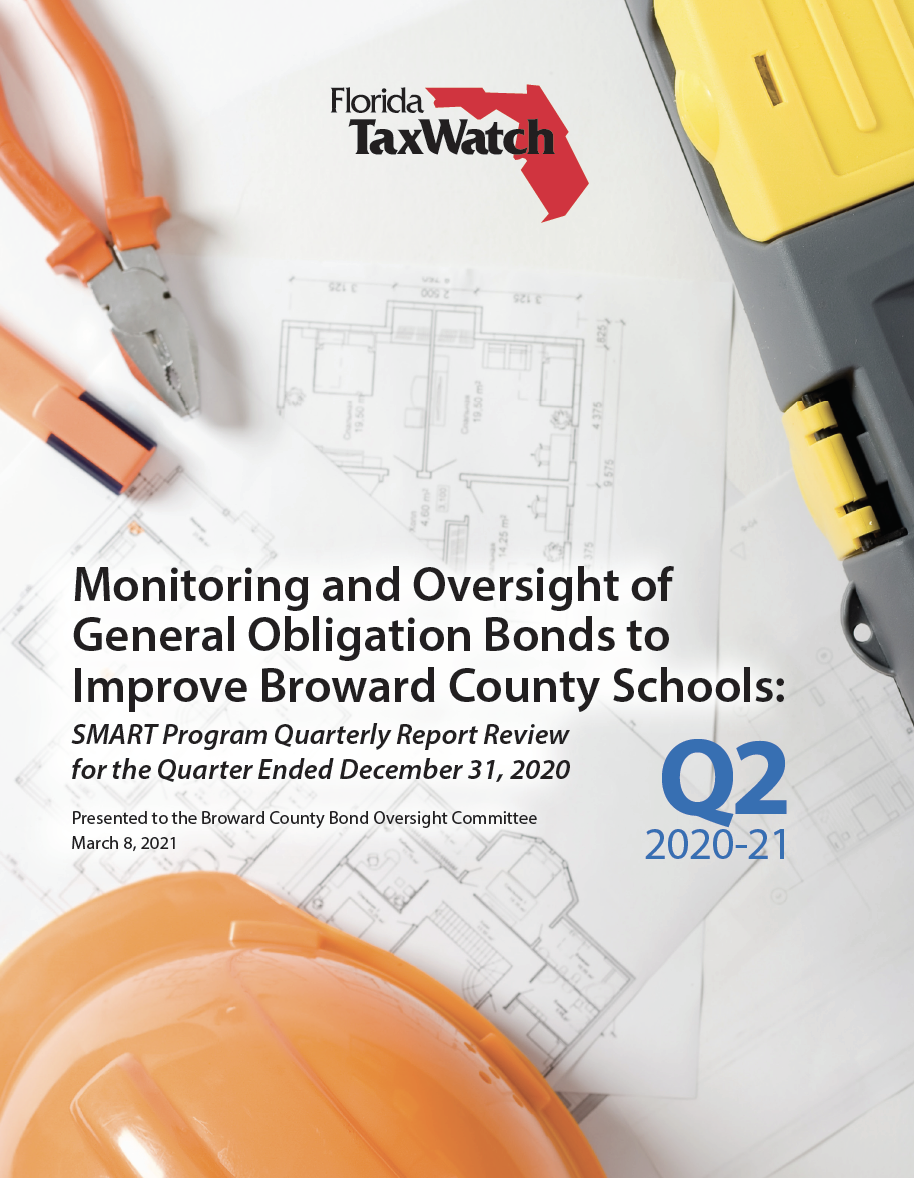Q2 2020-21 Broward Schools SMART Program Report Review

On February 21, 2021 Florida TaxWatch received the Bond Oversight Committee Quarterly Report for the Quarter Ended December 31, 2020 (“Quarterly Report”). This single 750-page report provides updated information on the implementation of the District’s SMART Program and the use of general obligation bond funds to purchase and install technology upgrades, purchase music and arts equipment, improve school safety, upgrade athletic facilities, and renovate educational facilities.
The Quarterly Report consists of an Introduction and the following eight sections:
Section 1 ---Technology School Board Broward County (SBBC) Schools;
Section 2 --- Technology Charter Schools;
Section 3 --- Music & Art Equipment;
Section 4 --- Athletics;
Section 5 --- Facilities;
Section 6 --- Budget Activity;
Section 7 --- Supplier Diversity Outreach Program; and
Section 8 --- Communications.
The SBBC has provided guidance to the Bond Oversight Committee in Section 4 of Resolution 15-106 (as amended). In reviewing quarterly reports prepared by District staff, the Committee is charged with:
Verifying the effective use of bond proceeds and compliance with the purposes set forth in the bond programs as approved by the SBBC;
Ensuring that bond revenues are expended for the purpose set forth in the bond programs as approved by the SBBC;
Ensuring that any deferred proposals or changes of plans are executed after appropriate approval of the SBBC;
Validating that no bond funds are used for any teacher or administrative salaries or other school operating expense; and
Reviewing efforts by District staff to maximize bond revenues by balancing best value, quality, and efficiency in meeting the bond programs as approved by the SBBC.
To encourage greater accountability, transparency, public support, and confidence in the use of the general obligation bond funds, and to hold the District accountable for spending decisions, Florida TaxWatch has reviewed the District’s Quarterly Report against the most recent SMART Program schedule and budget and is pleased to present the following report and recommendations.